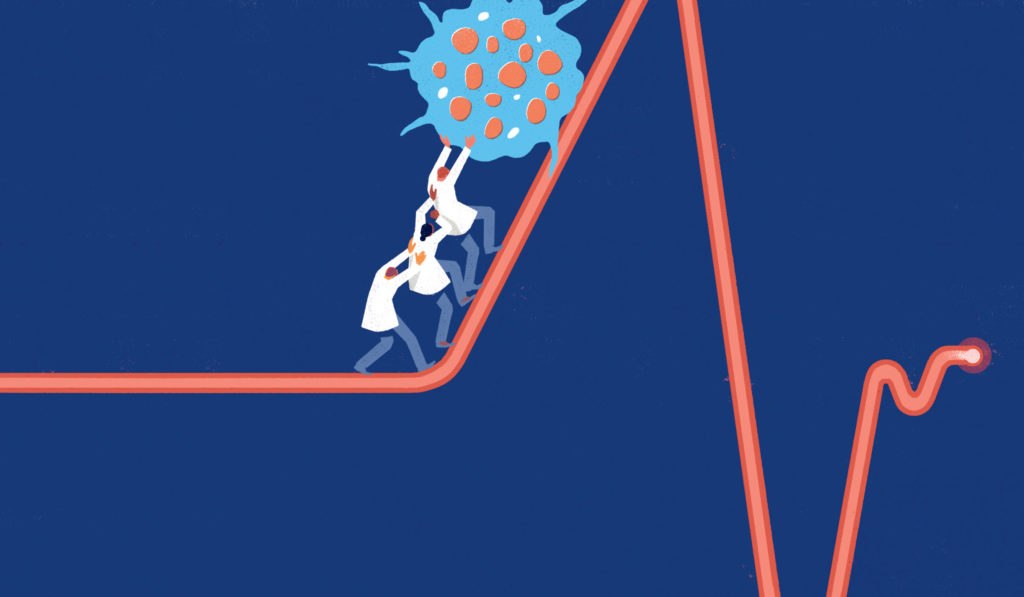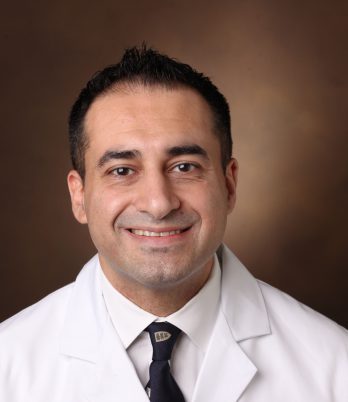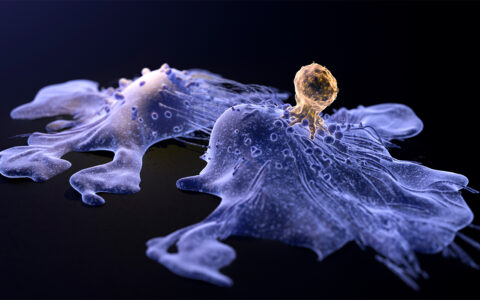Investigators at Vanderbilt University Medical Center are working to make immune therapy safer and more effective through a unique program, V-POINT (Vanderbilt Program for Immuno-Oncology Therapies), launched in January 2020 to facilitate collaboration among clinicians and scientists across departments.
“The diverse toxicities associated with immune-based therapies necessitates new collaborations,” said Javid Moslehi, M.D., co-director of V-POINT and director of the Cardio-Oncology Program at Vanderbilt. “V-POINT will promote cross-disciplinary efforts and the quick incorporation of medical advancements to improve patient outcomes.”
“The diverse toxicities associated with immune-based therapies necessitates new collaborations.”
“As immune therapies expand across cancer types, an increasing number of patients will experience side effects,” said Douglas Johnson, M.D., co-director of V-POINT and clinical director of the Melanoma Research Program at Vanderbilt. “The importance of effectively recognizing and treating these events is being recognized by a number of major centers and by the National Cancer Institute.”
Characterizing Cardiovascular Toxicities
Johnson, Moslehi and colleagues have made major contributions to the field of cardio-oncology and immuno-oncology. Their seminal research on myocarditis was initially described in the New England Journal of Medicine in 2016. Their recent work identifies other cardiovascular complications associated with immune checkpoint inhibitors (ICIs), including pericardial diseases and vascular-related disorders.
The detailed clinical characterization, published in The Lancet Oncology, established that cardiovascular immune-related adverse events (irAEs) were associated with specific immunotherapies and cancers, and were frequently severe, if not fatal. The findings also helped highlight the fact that immune-based therapies affect the entire cardiovascular system, not just the heart.
“Now we are beginning to see a lot of vascular complications, especially with new therapies and as more patients survive cancer.”
“There were more myocardial issues, so traditionally, many of the physicians taking care of these patients were heart failure specialists,” Moslehi said. “But now we are beginning to see a lot of vascular complications, especially with new therapies and as more patients survive cancer.”
The research team has also found that colitis, pneumonitis, hepatitis, and neurotoxic effects are other ICI toxicities associated with fatalities. Reported in JAMA Oncology and Nature Medicine, their work helped establish that fatal ICI-associated toxicities are rare but have diverse causes and occur very early in treatment.
Three Components to Improve Care
V-POINT will combine cutting-edge basic science, clinical research, and education – the three components Moslehi sees as key to tackling the challenging complications associated with immune therapies.
“We not only do clinical work, but we also pursue research in the lab to understand why these toxicities occur and how to develop therapeutic options,” Moslehi said. “In addition, the program has an educational mission. We are thinking about how to best educate and interact with community doctors who may not have access to a specialist to help them navigate these complex issues.”
“We are thinking about how to best educate and interact with community doctors who may not have access to a specialist to help them navigate these complex issues.”
Added Johnson, “Ultimately, immune therapies are transformative for many cancer patients. A multidisciplinary research program like V-POINT will allow us to use these revolutionary therapies more safely and effectively.”






